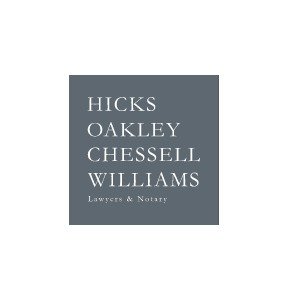Best Art & Cultural Property Law Lawyers in Mount Waverley
Share your needs with us, get contacted by law firms.
Free. Takes 2 min.
List of the best lawyers in Mount Waverley, Australia
About Art & Cultural Property Law in Mount Waverley, Australia
Art & Cultural Property Law in Mount Waverley, Australia, is a specialized field that addresses the legal issues related to the creation, protection, distribution, and regulation of art and cultural artifacts. This area of law covers various aspects, including intellectual property rights, provenance issues, the legality of acquisition, and compliance with international treaties and conventions. Mount Waverley, being part of the vibrant cultural landscape of Victoria, emphasizes the protection and management of cultural heritage and assets, ensuring that art and cultural property are preserved and respected.
Why You May Need a Lawyer
Individuals and organizations may require legal assistance in Art & Cultural Property Law for several reasons, such as:
- Disputes regarding the ownership or authenticity of artworks.
- Assistance with transactions involving the sale, transfer, or loan of art pieces.
- Protection of intellectual property rights for artists and creators.
- Issues arising from the illegal export or import of cultural property.
- Compliance with local and international laws and regulations regarding cultural heritage.
Engaging a lawyer who specializes in this field can help navigate these complex legal challenges and protect your rights and interests.
Local Laws Overview
In Mount Waverley, Art & Cultural Property Law is influenced by both state and federal legislation, as well as international conventions. Key aspects include:
- The Protection of Movable Cultural Heritage Act 1986, which regulates the export of cultural property from Australia.
- The Copyright Act 1968, which provides protection to artists and creators regarding the reproduction and distribution of their work.
- State heritage laws, which ensure the preservation and management of cultural heritage sites and objects.
- International conventions such as UNESCO’s 1970 Convention on the Means of Prohibiting and Preventing the Illicit Import, Export, and Transfer of Ownership of Cultural Property.
These laws collectively aim to safeguard the cultural heritage and ensure ethical management of cultural assets.
Frequently Asked Questions
What is cultural property?
Cultural property includes tangible heritage such as artworks, artifacts, monuments, and sites, as well as intangible cultural expressions like traditions, languages, and practices.
How can I prove ownership of an artwork?
Ownership can be established through documentation such as purchase receipts, provenance records, clear title transfers, and expert authentication.
What steps should I take if I find an artifact on my property?
It's crucial to report the finding to local authorities or a cultural heritage management agency, as there may be legal obligations regarding its preservation or protection.
What is a provenance, and why is it important?
Provenance is the documented history of an artwork or cultural item’s ownership. It's vital for establishing authenticity, legality, and value of the piece.
How are intellectual property rights related to art protected?
Artists can protect their works through copyright, which restricts reproduction and distribution without permission. Registration and licensing agreements also safeguard intellectual property.
Can I sell an artwork that originates from another country?
It depends on the export laws of the original country and applicable international laws. Documentation of legal acquisition is often required for a lawful sale.
What legal issues might arise from lending artwork to galleries or museums?
Legal issues can include damage or loss, insurance coverage, transportation logistics, and clarity over reproduction rights during the exhibition.
Are there tax implications associated with dealing in art?
Yes, buying, selling, or donating artworks can have tax implications, including capital gains tax or tax deductions for donations to accredited institutions.
What are my rights if my artwork is plagiarized?
If your work is copied or used without permission, you may have a legal claim for copyright infringement, allowing you to seek damages or statutory relief.
How can international conventions impact local cultural property laws?
International conventions provide frameworks for national legislation, ensuring that local laws align with global standards for the protection and restitution of cultural property.
Additional Resources
For additional guidance and support, consider exploring the following resources:
- The Australian Copyright Council for advice on copyright and intellectual property.
- Victoria’s Aboriginal Heritage Council for matters related to Indigenous cultural property.
- The Australia Council for the Arts for information on art funding and policy.
- Local artistic and cultural foundations that offer legal support and advocacy for artists.
Next Steps
If you require legal assistance in Art & Cultural Property Law, consider the following steps:
- Consult a lawyer specializing in art and cultural heritage to discuss your specific needs and circumstances.
- Gather all relevant documentation and evidence related to your legal inquiry, including provenance records and ownership paperwork.
- Reach out to local cultural organizations for initial advice and potential referrals to legal experts.
- Stay informed about any legal changes or developments in the fields of art and cultural property law by subscribing to industry newsletters or joining related forums.
Engaging with experts and utilizing available resources can greatly enhance your understanding and capacity to effectively handle legal matters in this nuanced field.
Lawzana helps you find the best lawyers and law firms in Mount Waverley through a curated and pre-screened list of qualified legal professionals. Our platform offers rankings and detailed profiles of attorneys and law firms, allowing you to compare based on practice areas, including Art & Cultural Property Law, experience, and client feedback.
Each profile includes a description of the firm's areas of practice, client reviews, team members and partners, year of establishment, spoken languages, office locations, contact information, social media presence, and any published articles or resources. Most firms on our platform speak English and are experienced in both local and international legal matters.
Get a quote from top-rated law firms in Mount Waverley, Australia — quickly, securely, and without unnecessary hassle.
Disclaimer:
The information provided on this page is for general informational purposes only and does not constitute legal advice. While we strive to ensure the accuracy and relevance of the content, legal information may change over time, and interpretations of the law can vary. You should always consult with a qualified legal professional for advice specific to your situation.
We disclaim all liability for actions taken or not taken based on the content of this page. If you believe any information is incorrect or outdated, please contact us, and we will review and update it where appropriate.









